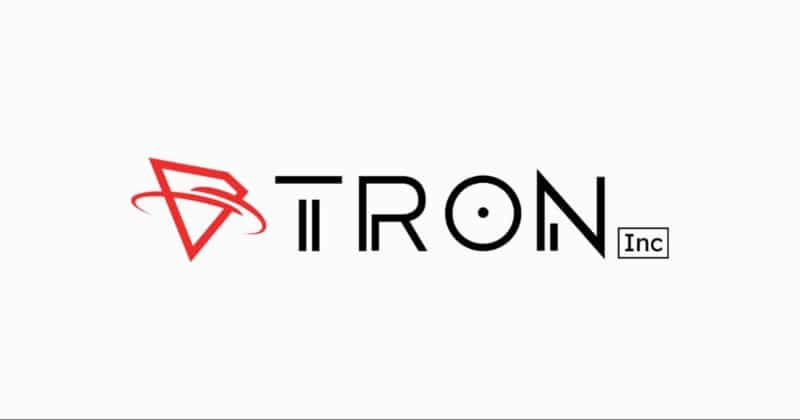“In order to succeed in business a man does not need a degree from a school of business administration. These schools train the subalterns for routine jobs. They certainly do not train entrepreneurs. An entrepreneur cannot be trained. A man becomes an entrepreneur by seizing an opportunity and filling the gap. No special education is required for such a display of keen judgment, foresight, and energy.”—Ludwig von Mises, Human Action
Fox Business reported in 2016 that more than 2,000 colleges and universities in the US offer a course in entrepreneurship. And why not? Fifty-four percent of Millennials want to start a business. Twenty years ago, fewer than 50 universities offered degrees in entrepreneurship. In 2023, there are 150 entrepreneurship programs, including most of the top business schools in the country. The top ten schools for entrepreneurship include prestigious universities like MIT, University of California, Berkeley, Penn, University of Utah, Babson College, University of Michigan, Baylor, and North Carolina, Chapel Hill.
While querying Google “What is an entrepreneur?” pictures of these individuals appeared: Richard Branson, Steve Jobs, Bill Gates, Elon Musk, Jeff Bezos, and Oprah Winfrey. Branson has dyslexia, did poorly in school, never went to college, and reportedly started his first business at 16. Steve Jobs dropped out of Reed College after one semester. Bill Gates left Harvard after two years. Elon Musk earned a bachelor’s degree in economics and physics from Penn, but dropped out of Stanford after two days. Jeff Bezos graduated from Princeton University in 1986 with degrees in electrical engineering and computer science. Oprah Winfrey said in a commencement address, “So I got my degree from Tennessee State, right around the time I got my third Emmy.” That same year she was also in the beginning stages of launching her own production company Harpo Studios.
While all are (or were) great entrepreneurs, few earned college degrees and none were schooled in entrepreneurship. Media mogul Ted Turner studied the classics at Brown but was expelled before graduating. Kirk Kerkorian dropped out of the eighth grade. Sheldon Adelson attended City College of New York but did not graduate. For sure, none of these famous entrepreneurs took inane courses with titles such as: “Business Model Development,” “Corporate Entrepreneurship: Initiating and Sustaining Innovations,” “Business Problem Formulation and Solving,” or “Social Entrepreneurship in Action.”
Dina Dwyer-Owens—CEO of The Dwyer Group who informally teaches entrepreneurship courses at Baylor University—told Fox Business, “I actually spend a good 30 minutes in my presentation talking about the importance of getting clear about what your values are in operating your business and how you can attract the types of team members that are like minded,” she says. “You certainly want team members that have strengths and weaknesses that complement yours, but having the same values in mind is key in building a business.” “Values” and “team members” doesn’t sound like entrepreneurship but instead, political correctness.
In a utterly laughable statement, Ms. Dwyer-Owens claims students can learn how to identify and establish a strategic planning process for a future business through their coursework. The country should have successful entrepreneurs popping up like dandelions anytime now.
According to Ludwig von Mises,
What distinguishes the successful entrepreneur and promoter from other people is precisely the fact that he does not let himself be guided by what was and is, but arranges his affairs on the ground of his opinion about the future. He sees the past and the present as other people do; but he judges the future in a different way.
A college degree is certification that the student has learned what was and is. Success at university is not formulating opinions about the future but to learn and memorize the opinions of professors, who learned from their professors, who learned from their professors, and so on.
Frank Knight distinguished entrepreneurs from other businesspeople by their willingness to act in the face of uncertainty. Entrepreneurs often don’t know whether their product will work, how it will be manufactured, who the customers will be, or how they can be reached. For Knight, in the face of uncertainty entrepreneurs act while others dither. Spending four or more years working toward a college degree is dithering, if nothing else.
For Israel Kirzner the entrepreneur is a person who, “upon seeing a $10 bill in front of his nose, is alert to the existence of the money and leaps to grab it. The alert man will grab the $10 note rapidly; the less alert man will take longer to see his opportunity and to take advantage of it.” But action by the entrepreneur alone is insufficient, others must be convinced and motivated.
University courses cannot teach what these three economists describe: innate qualities that the very few possess. Or, as Investopedia offers, “Entrepreneurship can be seen as the secret sauce that combines all the other factors of production into a product or service for the consumer market” (emphasis added).
Early Apple employees describe Steve Jobs as being able to “convince anyone of practically anything.” Andy Hertzfeld—an engineer for Apple—said Jobs had a “reality distortion field, a confounding mélange of a charismatic rhetorical style, an indomitable will, and an eagerness to bend any fact to fit the purpose at hand.”
Entrepreneurs must be able to persuade investors, lenders, vendors, employees, landlords and many others to suspend disbelief. To, as writers for the Harvard Business Review write, “see the opportunity the entrepreneur sees: a world that could be but is not now” (emphasis in original).
The entrepreneur must have an enormous appetite for risk. The 18th-century economist Richard Cantillon called entrepreneurs a “special, risk-bearing group of people.” And with risk comes conflicts of interest and the opportunity to bend the truth.
While some may have the talent, they may not be able to, in a word, lie—and lie with conviction to the point they believe the lies themselves. Entrepreneurs are constantly trying to convince others so the opportunities to stretch the truth are many, and they have a lot on the line. There is the asymmetric information problem. The entrepreneur is not starting or running a transparent company. He or she possesses information no one has and, thus, can easily exaggerate, or just plain distort the facts to suit their needs.
The HBR writers cite a 2018 Entrepreneur magazine interview with Stonyfield Farm founder Gary Hirshberg. The yogurt vendor rationalized any untruths he told along the way as, “I think lying, if we want to call it that, which I guess is what it should be called, for the common good, because in the end it didn’t help the vendors for me to go under either, is OK as long as you ultimately do deliver.”
The utilitarian ends justify the means, if everything works out OK. “[I]t is the greatest happiness of the greatest number that is the measure of right and wrong,” Jeremy Bentham wrote.
Hirshberg saw himself as the champion not only for those involved in his business, but friends and family. “We were fighting for employees’ jobs and our mothers’ and mothers-in-laws’ and friends’ investments. Fighting for our lives. And I think anything goes, as long as you’re not injuring anybody.”
After all, it’s just business, right?
He wasn’t doing anything that any other business person was doing. Hirshberg said of his vendors, “It’s not like they haven’t seen it before.”
The entrepreneur must stretch the truth to convince others he or she can predict the future when, in fact, that’s impossible, but not radically impossible. Stephan Kinsella writes, “My view is the Misesian-Rothbardian-Hoppean one, which I understand to be that the future is uncertain, but not radically so; that knowledge of economics laws can help, ceteris paribus—but that usually other factors are dominant.”
Kinsella goes on to mention a conversation with an economist specializing in entrepreneurship, Peter Klein, who told Kinsella, “the question of why or how someone has the better skill at forecasting is really meta-economics—more of a psychological field, which is studied at Effectuation, from a Kirznerian perspective.”
Murray Rothbard explained that,
…the forecaster attempts to predict the events of the future on the basis of present and past events already known. He uses all his nomothetic knowledge, economic, political, military, psychological, and technological; but at best his work is an art rather than an exact science.
Hans-Herrman Hoppe echos Rothbard’s view, writing, “while economic forecasting will indeed always be a systematically unteachable art, it is at the same time true that all economic forecasts must be thought of as being constrained by the existence of a priori knowledge about actions as such.”
As an example, the quantity theory of money, writes Hoppe, is not an empirical theory but a praxeological theory which would act as a logical constraint on prediction-making. “It means that in the long run the praxeological enlightened forecaster would average better than the enlightened ones.”
However, for the entrepreneur, the long run means little to nothing. There is money to raise, rent to pay, payrolls to make, and dozens of other pressing issues. The praxeologically-enlightened entrepreneur could go bankrupt waiting to be right in the long run.
What Rothbard and Hoppe call art, Ludwig von Mises called speculation.
Like every acting man, the entrepreneur is always a speculator. He deals with the uncertain conditions of the future. His success or failure depends on the correctness of his anticipation of uncertain events. If he fails in his understanding of things to come, he is doomed. The only source from which an entrepreneur’s profits stem is his ability to anticipate better than other people the future demand of the consumers.
It should be remembered, much of the foundational work on entrepreneurship and uncertainty was written while the US and many other countries were on a gold standard—a system which kept prices steady and, in many ways, decreased the number of financial market manias and panics viz-à-vis today’s fiat money standard, or (as Jim Grant terms it) the PHd standard. Liquidity episodes are now common and banking panics come every decade or so. This environment creates more uncertainty for today’s entrepreneurs. The other change is the amount of regulation has exploded from all levels of government from when Knight and Mises theorized. Peter Klein wrote in his book The Capitalist and the Entrepreneur, “When an industry is regulated, deregulated, or re-regulated, economic calculation becomes more difficult, and entrepreneurial activity is hampered. It should not be surprising that poor long-term performance is more likely under those conditions.”
One of the entrepreneurs mentioned above, Elon Musk, by some accounts is less an entrepreneur than a rent seeker, building his fortune on government subsidies. In a 2014 Bloomberg article, Barry Ritholtz wrote, “almost all of Musk’s companies rely in some form on government subsidies or tax breaks. Tesla’s earnings, according to Forbes, aren’t derived from selling automobiles, but from selling ‘emissions credits mandated by the state of California’s electric vehicle requirements.’”
The financial press desperately wants fresh, young entrepreneurial geniuses to report on. But the current, heavily-regulated, fragile financial system environment makes it more difficult for young entrepreneurs to blossom. Two of the most celebrated young entrepreneurs of the past decade—Elizabeth Holmes and Sam Bankman-Fried—are both serving prison time. Not so long ago, Holmes graced the cover of Inc. magazine which touted her as “The Next Steve Jobs.” Fortune featured a 30-year old Bankman-Fried on its cover asking if he was “The Next Warren Buffett?”
In his 2023 book Chaos Kings: How Wall Street Traders Make Billions In The New Age Of Crisis, Scott Patterson chronicles the stories of Mark Spitznagel and Nassim Taleb whose threefold trading strategy assumes; the future is impossible to predict, extreme events are now more devastating than many people assume, and drawdowns (failures) mean more than wins.
While it’s clear entrepreneurship cannot be learned, the covid recession served to accelerate the number of entrepreneurship programs. Timothy Mescon wrote for aacsb.edu,
…in March 2020—perhaps the most disruptive time of the pandemic—demand for entrepreneurship education was up 66 percent year-on-year. This is a strong indication that, during times of great crisis, students perceive new business creation as a catalyst for helping them overcome challenges and find opportunities.
Vincenzo Esposito Vinzi—dean and president of ESSEC Business School in France—noted, “Students increasingly consider entrepreneurship an efficient way to impact the world,” he said. “They realize that creating their own businesses or joining young and agile companies can provide significant opportunities to shape the world and solve environmental and social problems.” Again, this is not entrepreneurship but political correctness.
Descriptions of entrepreneurship programs do not mention risk-taking, acting in the face of uncertainty, forecasting, and speculation. These university programs are simply attempting to attract would-be lawyers or engineers with heady pronouncements that an entrepreneurship degree will allow them to make the world a better place, not by creating new products or services, but by saving the environment and solving society’s ills.
Many entrepreneurs created through these covid-fueled programs will likely be failures, wasting not only the cost of the education but any capital used to start their world-saving dreams. Thankfully for these entrepreneurial failures, a routine job awaits.
The title of this essay is, of course, a play on Walter Block’s monumental book Defending the Undefendable. Murray Rothbard’s comment about Defending, that “many of ‘our people’ are not ready for this exciting and shocking adventure” comes to mind as “our people” (Austrians) make their living teaching what can’t be taught—entrepreneurship.



























